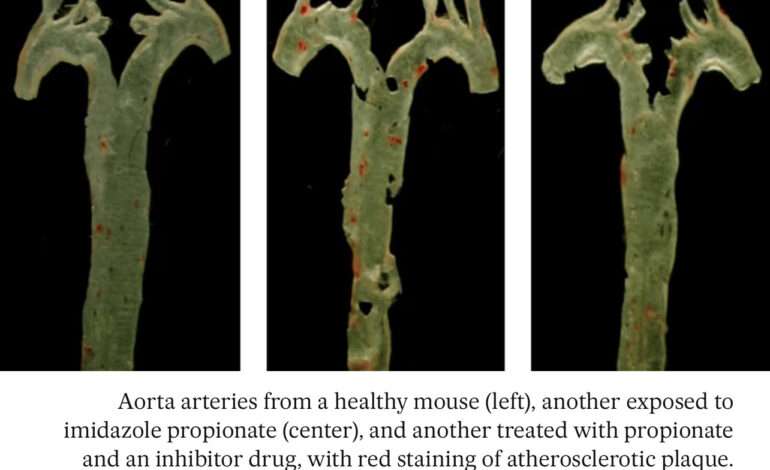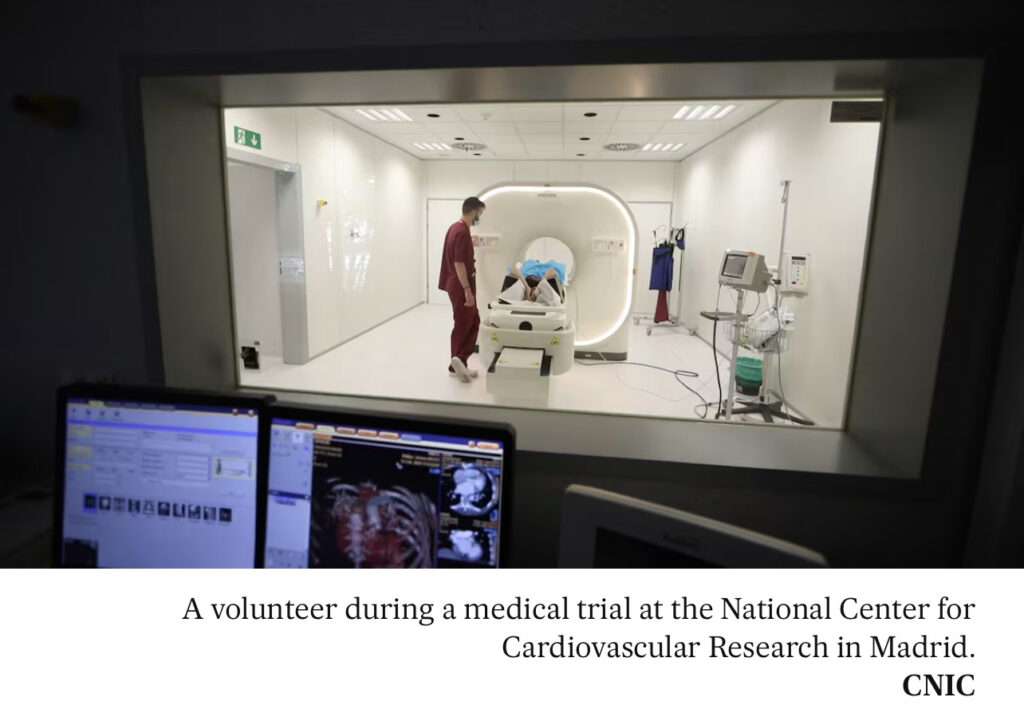
A Gut Reaction: Revolutionary Discovery Links Gut Bacteria Molecule to Heart Disease
By: Dr Avi Verma
In a groundbreaking revelation that could reshape cardiovascular medicine, Spanish scientists have identified a simple molecule produced by gut bacteria that directly causes atherosclerosis—a condition responsible for millions of deaths annually due to heart attacks and strokes.
Published in Nature, this landmark study shifts the long-standing narrative that atherosclerosis is caused primarily by cholesterol buildup. Researchers now point to a compound called imidazole propionate, produced by certain gut microbes, as a major independent trigger of the disease.
The Study That Sparked a Medical Breakthrough
Fifteen years ago, the National Center for Cardiovascular Research (CNIC) in Madrid launched an ambitious project involving thousands of employees at Banco Santander. The goal? To understand the early development of heart disease in seemingly healthy individuals. What researchers found was shocking: 63% of volunteers aged 40–55 showed signs of silent atherosclerosis, even with no outward symptoms. Upon further investigation, one molecule consistently appeared in those with active disease: imidazole propionate (chemical formula C₆H₈N₂O₂).
What researchers found was shocking: 63% of volunteers aged 40–55 showed signs of silent atherosclerosis, even with no outward symptoms. Upon further investigation, one molecule consistently appeared in those with active disease: imidazole propionate (chemical formula C₆H₈N₂O₂).
How It Works
This microbial molecule, when it enters the bloodstream, interacts with immature white blood cells and triggers a damaging inflammatory response in the arteries—setting off the buildup of fatty plaques.
“Imidazole propionate induces atherosclerosis on its own. There’s a causal relationship,”
— Dr. David Sancho, CNIC lead investigator
Experiments in mice confirmed the molecule’s dangerous potential. Administering imidazole propionate caused the animals to develop arterial plaques. But there’s hope: a drug developed to block the receptor this molecule binds to completely prevented the disease in treated mice.
Beyond Cholesterol: A New Layer in Heart Disease
This discovery challenges the idea that cholesterol alone is responsible for cardiovascular risk. In fact, one in five human subjects with active atherosclerosis had high levels of imidazole propionate—even if their cholesterol levels were normal.
“This may explain why some individuals suffer heart attacks despite having no classic risk factors,”
— Dr. Arash Haghikia, cardiologist, Ruhr University, Germany
The study reinforces that atherosclerosis also has an inflammatory and autoimmune component, expanding the focus of both diagnosis and treatment.
The Gut-Heart Connection: Which Bacteria Are to Blame?
While the specific strains responsible are still under investigation, researchers observed shifts in gut flora associated with harmful levels of imidazole propionate. Increases in genera like Escherichia, Shigella, and Eubacterium were notable.
Conversely, individuals following diets rich in vegetables, fruits, whole grains, fish, and low-fat dairy showed lower levels of the dangerous molecule—reinforcing long-held beliefs about the power of nutrition in preventing heart disease.
An Urgent Global Impact
Cardiovascular diseases are the leading cause of death worldwide, claiming over 18 million lives annually. This new research could change that trajectory.
“This study could revolutionize how we diagnose and treat atherosclerosis,” stated a press release from CNIC. In the early stages of the disease—when no symptoms are present—measuring levels of imidazole propionate might serve as a powerful diagnostic tool.
Looking Ahead: A New Era in Preventive Cardiology?
With support from European research agencies and the participation of more than 4,000 volunteers, this study represents a massive collaborative effort. It also adds to a growing body of science uncovering the role of gut microbes in everything from diabetes to cancer.
Just as another recent study linked a bacterial toxin (colibactin) to rising rates of colorectal cancer in young adults, this new research reaffirms the gut as a central player in systemic disease—and a promising frontier for future treatments.
DISCLAIMER
This article is for informational purposes only and is not a substitute for professional medical advice, diagnosis, or treatment. Always seek the guidance of your physician or qualified healthcare provider with any questions regarding your health or medical condition. Never disregard professional advice or delay seeking it because of something you have read in the IndoUS Tribune.